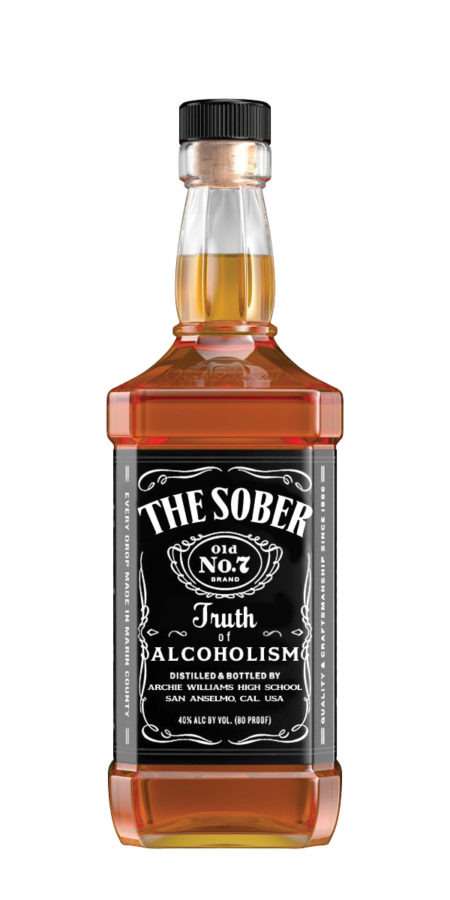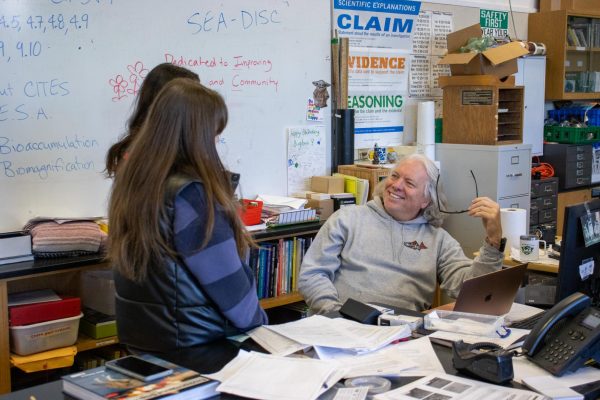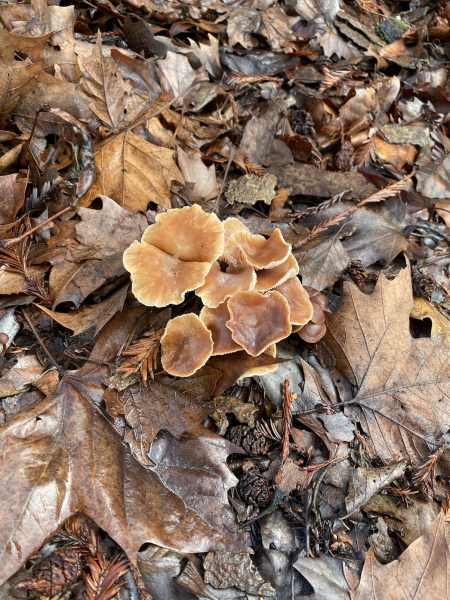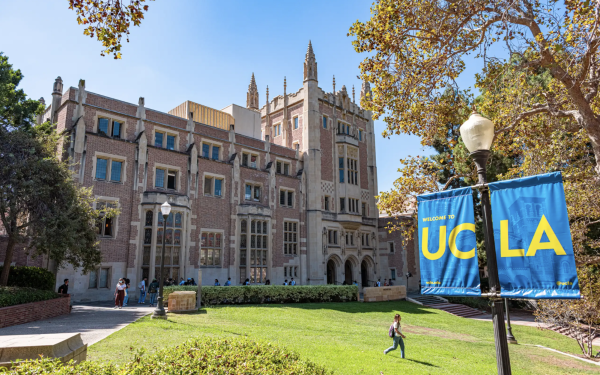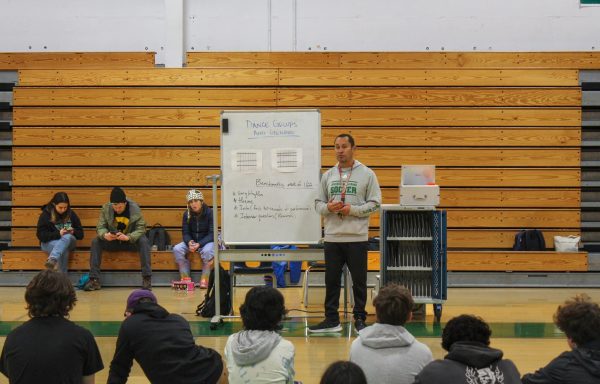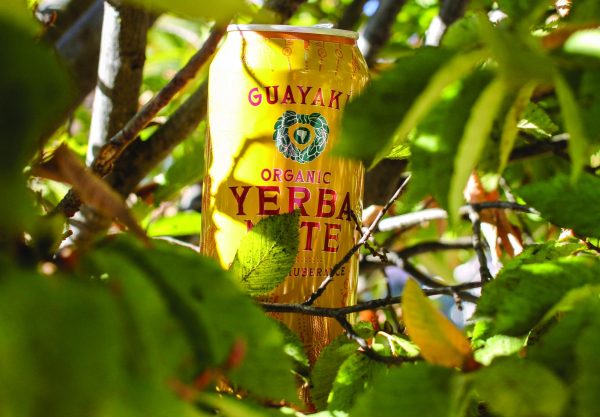The Sober Truth of Alcoholism
Experimentation with alcohol is abundant with the Archie Williams student body.
The teenage years are intertwined with alcohol usage. Many understand that experimentation with alcohol is part of the stereotypical high school experience, but a common vice can quickly snowball into a crippling addiction. While recognizing that teenagers aren’t going to stop drinking overnight, the question must be asked: are they able to have a healthy relationship with alcohol?
According to the California Healthy Kids Survey administered to Archie Williams students in the spring of 2022, 51 percent of all seniors regularly used alcohol or drugs. Information presented by the California Healthy Kids Survey and The National Survey on Drug Use and Health exhibit a substantial increase in alcohol usage between the years of middle school and high school.
“I had never seen anyone drink in middle school so it’s very different [in high school], and it’s like a whole new culture change,” said Archie Williams freshman Devin Moss. “I see a lot of [alcohol] around, a lot of kids are doing it in the bathrooms and stuff.”
The National Survey on Drug Use and Health found alcohol is the most prevalent substance used among teens 12-17 years of age. Junior Revel Roxberry noted a variance in alcohol usage among grade levels at Archie Williams.
“I think freshmen drink the least, then the sophomores after that, and the seniors the most. [Alcohol use] just progresses over the years,” Revel said.
According to a CDC report, each year from 2006 to 2010, excessive alcohol consumption caused approximately 4,300 deaths among individuals under 21 years old. The report also found that in 2010, underage drinking cost the United States $24.3 billion in a combination of workplace productivity loss, health care expenses, property damage, and criminal justice expenses.
According to a Marin County Grand Jury report, The Marin Youth Alcohol Crisis (2012), 24 percent of Marin County adults reported drinking excessively in the past 30 days, three times more than the national average and 41 percent higher than the California average.
Marin youth appear to be following in their parents’ footsteps. The CDC defines binge drinking as consuming five or more drinks on an occasion for people who were assigned male at birth or four or more drinks on an occasion for people who were assigned female at birth. According to the California Healthy Kids Survey, between 2017 and 2019, 24 percent of Marin County juniors reported binge drinking. Only 16 percent of all adult Californians polled in a 2018 CDC Alcohol and Public Health Report reported binge drinking. On average, a Marin County junior will be more likely to binge drink than someone of any age from another part of California.
“I’ve had a couple of friends who have gone to the hospital because of their issues with drinking. They were too scared of their parents to get help,” Revel said.
Some Archie Williams students believe that a lack of supervision and proper parental guidance influences unsafe alcohol consumption.
“I think there’s a lot of parents who just aren’t really aware of what their child is doing and I think a lot of parents don’t attempt to keep their children in check with alcohol usage. I’ve noticed that a lot of parents don’t have conversations with their children about drinking and how to be safe with substance use,” said senior Tasha Schafer.
It’s naive to think people can completely separate alcohol and teenagers: the relationship has existed decades before these surveys were conducted. But why are the numbers so high in Marin? And is there a safer way to approach drinking in high school?
Research shows that teens who observe their parents “self-medicating” with alcohol to deal with stress might perceive this behavior as an effective way to confront challenges and adopt the same coping mechanisms for themselves. The National Institute of Health found the usage of alcohol as a stress-relief method to be problematic. Self-medicating with alcohol may provide short-term relief from stressors, but is unsustainable in the long run. Adolescents’ reliance on alcohol to self-medicate can lead to serious alcohol-associated problems in their futures. Mothers Against Drunk Driving (MADD) reported that 95 percent of the 14 million alcohol-dependent individuals began drinking before the age of 21.
“[I drink] on the weekends, sometimes weekdays. It’s pretty hard waking up in the morning and vomiting sometimes, it’s not too fun.” said a sophomore who wishes to remain under the anonymous name “Ryan.”
“[Archie Williams students drink] a lot of hard alcohol because that’s the easiest [thing] they can get their hands on, that’s the easiest thing to steal. You know that’s what’s going to get you drunk fast. Drinking is not a good thing, it doesn’t make you think right. I’ve done a lot of stupid things while intoxicated,” Ryan said.
Although purchase and consumption of alcohol is limited to those of legal age, Archie Williams students feel that if educated correctly and in a safe environment, teenagers can drink alcohol responsibly.
“If the parent is okay with [their kid drinking], and the person knows what they’re doing and isn’t going to get hurt, then it’s chill,” Revel said.
Many organizations devote themselves to creating safe spaces for teens to get support if they are struggling with the boundary between safe consumption and addiction. A branch of Al-Anon, Alateen, provides confidential meetings for teens to share thoughts, experiences, and worries concerning their parent’s alcohol addiction. Alteen has a mobile app for teenagers aged 13-18 to share their experiences and find comfort. Their Marin branch is located in Corte Madera, and holds weekly meetings and support groups.
To reduce the risk of alcohol-related harms, it is recommended by the 2020-2025 Dietary Guidelines for Americans that you limit your intake to 2 drinks or less in a day for those assigned male at birth or 1 drink or less in a day for those assigned female at birth. When this is not realistic for students at Archie Williams, assign a designated driver. Be aware of your consumption, reflect on your drinking habits, and above all, ask a parent, guardian, or trusted peer if you need help.
Your donation will support the student journalists of Archie Williams High School. Your contribution will allow us to purchase equipment and cover our annual website hosting costs. Each donation will receive a magazine subscription for a year (6 copies a year), and become a part of the important work our publication is doing.
$35 -- Subscription to the magazine
$50 -- Silver Sponsorship
$75 -- Gold Sponsorship
$100 -- Platinum Sponsorship

Charlie is a sophomore, in his second year of journalism. He joined the class because Ben Luka is in it. You can often find him playing the drums or spending...

Grace is a senior, in her second year of journalism. She enjoys creating multimedia art and listening to 90s rap. She also loves puppies, rainbows, kitties...



